
Sometimes we all want that one curiosity in the garden to get people talking. That unique plant that’s a little… weird. A little…out of this world. But who needs an intergalactic trip when
there are many unusual plants native to the United States, and often your own backyard? And while Earth’s oddest plants can demand special care, these surprisingly widespread natives are easy to grow and will still wow:
Buttonbush (Cephalanthus occidentalis; Zones 4b–11) is a charming three-season shrub that will “make you believe.” A widespread East Coast to Midwest North American native with extant ranges dotted west toward California and south to Mexico, this shrub is found along wetland margins. Therefore it thrives in marshy, wet, clay conditions—but it tolerates more upland loam and moist garden soils, too. With its deep roots, buttonbush provides excellent erosion control for rain gardens, embankments, and low, pooling or washout-prone drainage spots and gullies. It grows in full sun or part shade.
This is a large shrub, reaching six to twelve feet tall and wide with a spreading, rounded habit. It can attain tree-like branching with age. Shiny, flame-shaped leaves emerge chartreuse in spring and age to medium to dark green and lengths of three to eight inches. The foliage makes buttonbush a beautiful screening plant, but its true space-age appeal comes midsummer, with the tiny, round, composite, pale-green buds forming at the end of branches. These soon explode into inch-round fuzzy, honey-scented white to shell-pink pompom flowers. Butterflies, bees, hummingbirds, children and adults are all drawn as if by a tractor beam to the oddball sight!
This story is from the November - December 2023 edition of Horticulture.
Start your 7-day Magzter GOLD free trial to access thousands of curated premium stories, and 9,000+ magazines and newspapers.
Already a subscriber ? Sign In
This story is from the November - December 2023 edition of Horticulture.
Start your 7-day Magzter GOLD free trial to access thousands of curated premium stories, and 9,000+ magazines and newspapers.
Already a subscriber? Sign In

Pot It Up
Shake up the containergarden with theseNorth America –native perennials

THE GARDEN PATH TO PERDITION
I WAS CRUISING RIGHT ALONG, feeling okay about myself, when I came across a list of the Seven Deadly Sins.
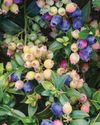
A Productive PATIO
Tiny fruit, vegetable and herb plants help gardeners maximize any sort of growing space
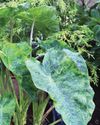
TROPICAL FUSION
A FUSS-FREE APPROACH TO USING BOLD TROPICAL PLANTS IN ANY TEMPERATE GARDEN

WINTER READING
Pass the time with any of these inspiring books
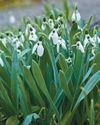
SENSING A PATTERN
Greg Coppa reflects on an odd weather year and what continued warming may mean for his Rhode Island garden
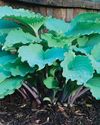
TOP-PRIZE PERENNIALS
A foliage masterpiece for shade and a late bloomer for sun

MARK WESSEL
What's new for fruit and vegetable gardeners?
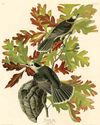
KINGS OF THE NORTHERN FORESTS
A look at the trees, shrubs and perennial plants that bolster life in Ecoregion 5

PROJECT FEEDERWATCH
Gardeners can help scientists know just where the birds are in winter